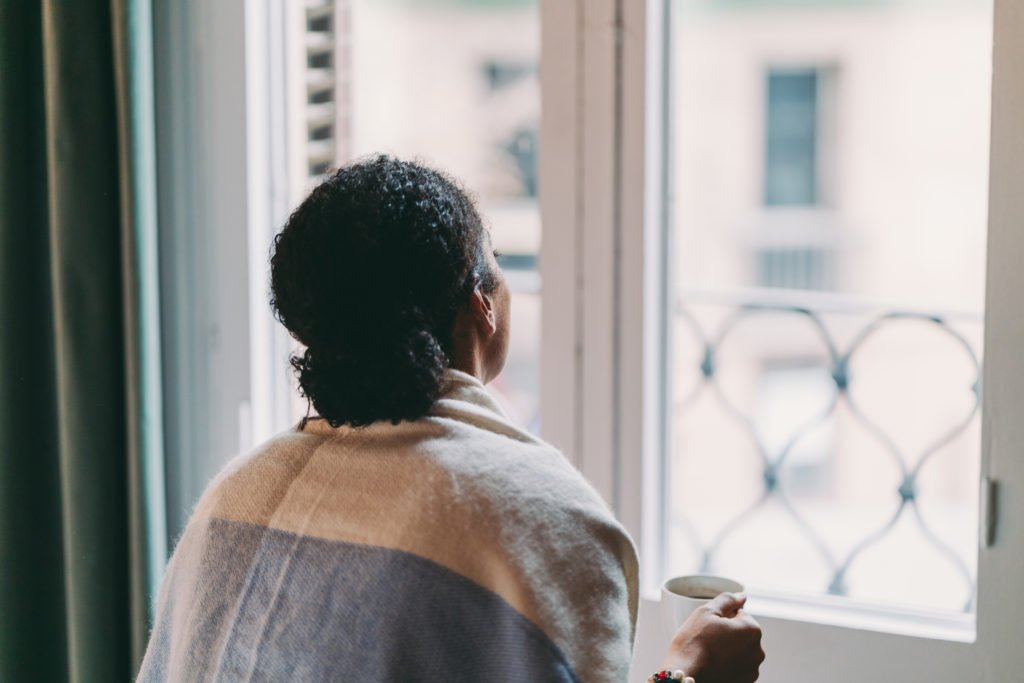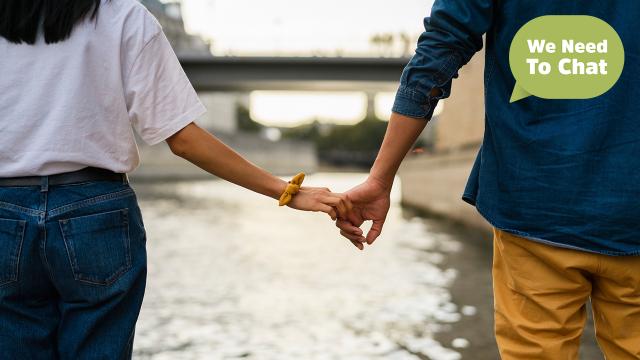February 4 is World Cancer Day – a time to spread awareness of the disease and raise funds in the name of finding a cure. If you’d like to participate, you can read more about it via Cancer Council Australia. But in the meantime, one very simple but important thing you can do is read the story of someone living with cancer, Natalie Fornasier.
Read her story in her own words below.
I’m 27 years old, have stage IV melanoma and when I say I’ve been through it all when it comes to relationships: I have.
There’s no rulebook when it comes to cancer, just like there is no rulebook when it comes to life. But when the “c” word is now added to the list of ingredients that make up who you are, it’s all people can see.
Cancer isn’t a dirty word. The involuntary action shouldn’t be to look at the ground, with uneasy eyes as soon as it’s spoken. And yet, that is how we act. We ignore it, skirt around it and leave it unsaid. We think it’s the right way, but in fact, it is the very opposite.
When I was first diagnosed, I wasn’t vocal about it. I didn’t share my fears with my friends; I kept it all inside. I was ashamed – convinced I brought this on myself. I look back and recognise I fed straight into the ableist hands our society so heavily thrives on – that I was an inconvenience because cancer is often seen as something to be kept hidden. My first foray into the cancer club was hushed to the sides like you would hush a child after they said something inappropriate.
Four years later, I relapsed. I had progressed to a stage IV cancer diagnosis after just coming back from an eight-month exchange in Italy. Being gone for that long meant coming home was odd – I no longer knew where I fit because that distance had placed a strain on my friendships rooted in Australia.
Pretty quickly it became clear that the people I was supposed to just slip back into a rhythm with didn’t actually care about me. Their “Hi, how are you’s” felt superficial, like something on a to-do list rather than an investment of their time.
Friendships after diagnosis
Friendship and cancer is complex. It is a maze with many wrong turns, deceiving doorways and a mass number of dead ends. I’ve watched people who have been in my life for over ten years, no longer see me as the person I was growing into, but instead defined by this disease. (You have no idea how many times I’ve been referred to as the friend who has cancer – right in front of my face).
The people I had lived life alongside for so long, felt like strangers. I couldn’t connect with them. They were busy with their lives, which were all at the same stage. They had things in common, and I no longer did. I was fighting a disease that took up all my time, which meant my focus was elsewhere and my ‘friends’ took that for an automatic dismissal of my inclusion because I was “busy”.
I noticed that not only were the people around me uncomfortable because of my disease, they felt they were upstaged by my cancer, as it was always in play. Because when you’ve been through what I’ve been through, there are few things people can say to make it better, but a lot of things one can say to make it worse. Everyone was orbiting around me, like the sun – never coming too close because I would burn their touch.
As I became more vocal about my disease on social media, I’d write things I’d never spoken to these ‘friends’ about and their comments of support would appear for the world to see, while my message inbox remained empty. Soon, I would learn about the term ‘grief tourists’ – people who would show up on social media because it suited them. They could give themselves a pat on the back because a public display of care fed into the illusion they were supportive but in real life? They weren’t there at all.
For a while, I thought I was the bad friend. I’d been so consumed with my life – I wasn’t present enough in theirs and so I needed to be in charge of updating everyone in the group chat and initiate every conversation. I was so exhausted, both mentally and physically, and yet I felt I had to please everyone – to hold onto the old Natalie that suited these people better, because they knew how to connect with her.
I did this because we’d been friends for years and you’re supposed to care for your friends, right? Cancer is uncomfortable – I saw how they would recoil from it and so I’d bend myself in every way to make them feel comfortable.

In a time where I should have been leaning on my friends for support, I was propping them up.
In every facet of my life, I felt like I was treading water. Looking back now, I was actually drowning.
“You’ve outgrown them, Natalie,” My psychologist told me as I spilled all my thoughts about how I felt so out of place.
“Not only that, but some friendships have expiration dates. People should help you grow, encourage you and celebrate your wins. They should be lifting you in your time of need. They should be communicating with you. You have the power to choose the people in your life, so use it.”
I knew she was right, but deep down I was afraid to walk away from people I had been connected to for over ten years.
The final straw was when I shared some news that in the cancer realm was positive for the future… only for it to be left on read. No congratulations, not even a half-arsed emoji. People that I thought were my friends, left me on read.
The quote, “pay attention to how people react to your good news” is now something I live by.
So, I phased myself out. I stopped updating. I stopped people pleasing and I put myself first. Did they reach out? No. I realised that it was not my responsibility to baby these adults and silence my needs in order to fulfil a version of myself that I no longer resonated with. I didn’t have to take steps backwards in my growth journey just to keep these people happy.
Looking back, I know I did the right thing. It took some time, but I have found my people – a carefully curated group who understand me and my needs, who communicate effectively and care because they want to, not because they have to. They lift me up, put my appointments in their calendars and give me space to be vulnerable – something I realised I was missing from my other relationships. Their presence in my life makes me feel warm and fuzzy inside. In short: I love them.
How do you be there for someone with cancer?
To be honest, the answer is so simple and yet, so many get it wrong.
Be there.
(And maybe look at this list)
- Check! In! Regularly! Not only with said person who is going through it, but their loved ones as well. Don’t expect a reply. If you’re expecting a reply, the message is more for your benefit than theirs.
- Bring/make them food. The gesture counts. It really, bloody counts. Cooking is the last thing on their mind. Throughout my whole cancer journey of seven years, only three people have done this. And one of them was a fellow cancer fighter. I’ll never forget their kindness.
- If gifts are your love language, think of something good for the soul. A facial, a massage, a getaway, a cleaning service. The hospital becomes home so having a break from ‘life’ is so welcome.
- Be understanding. It’s easier said than done, but your job as a friend is to remain as steady as possible. Don’t stop inviting the person even though they’ve cancelled twenty times. Understand that you’re holding the weight in the relationship now so you have to accept that the person who has cancer, may not reciprocate the load like they did before. If you’re not okay with that and it doesn’t sit well with you – you need to do some critical thinking as to why that is.
- Don’t avoid the person. If you’re someone who doesn’t want ‘bad things’ in their orbit, again, you need to do some extreme critical evaluation. Shit happens. Life isn’t peachy like Instagram makes you believe. That person who is sick will change – give them the space to do so. Don’t be a ‘grief tourist’ and show up when you fancy and then get scared of talking about the real stuff. Show up, stay put, be real. Real is better than distant.
- A teddy to cuddle always helps.
This article has been updated since its original publish date.

Leave a Reply
You must be logged in to post a comment.